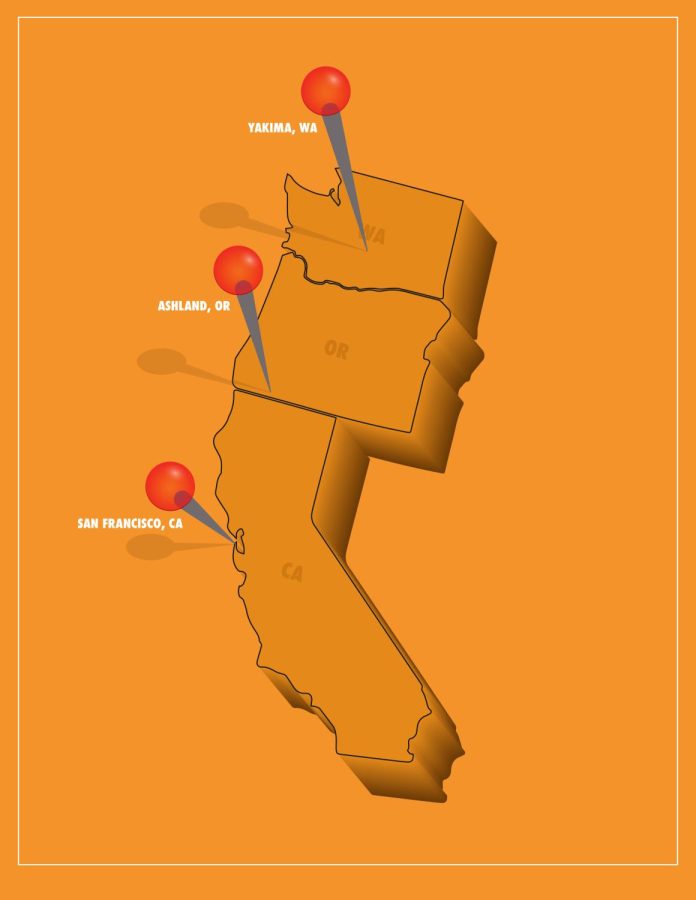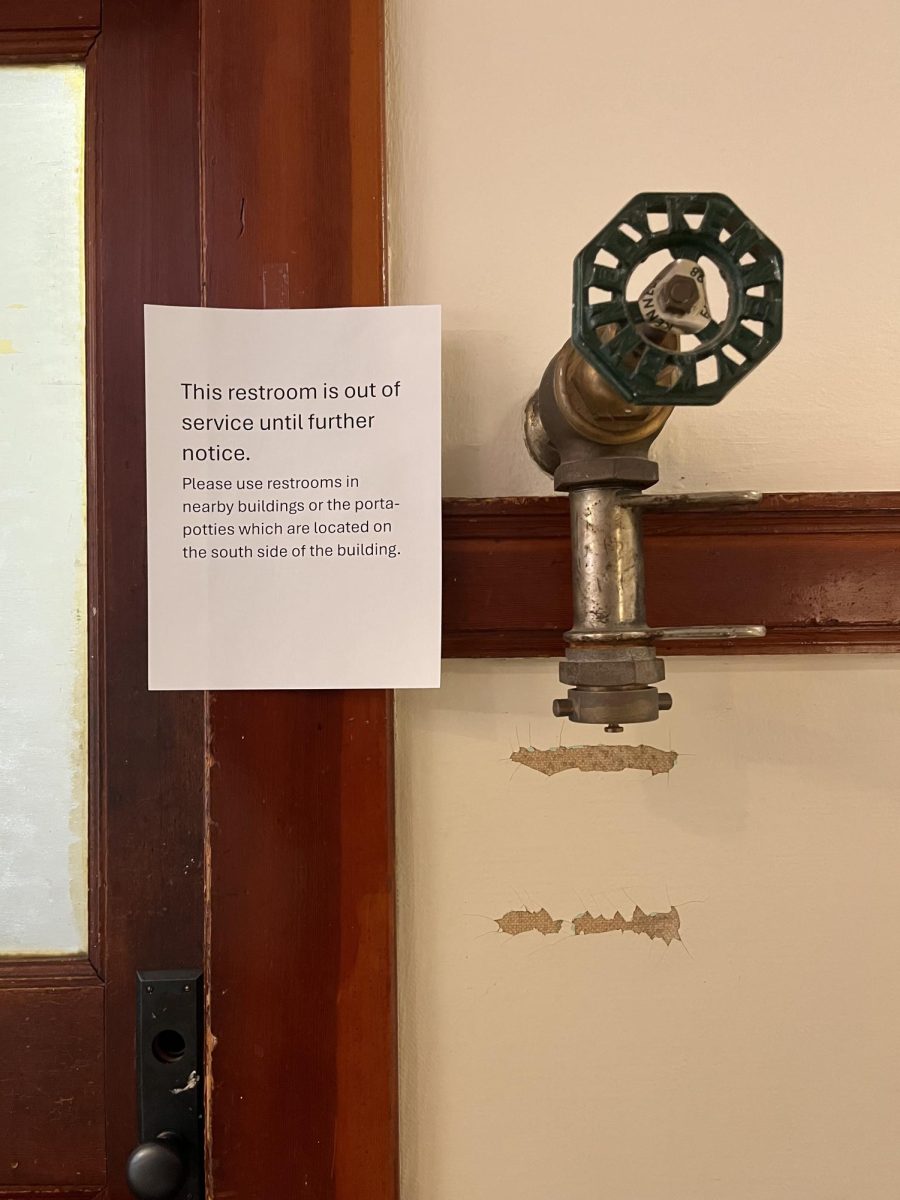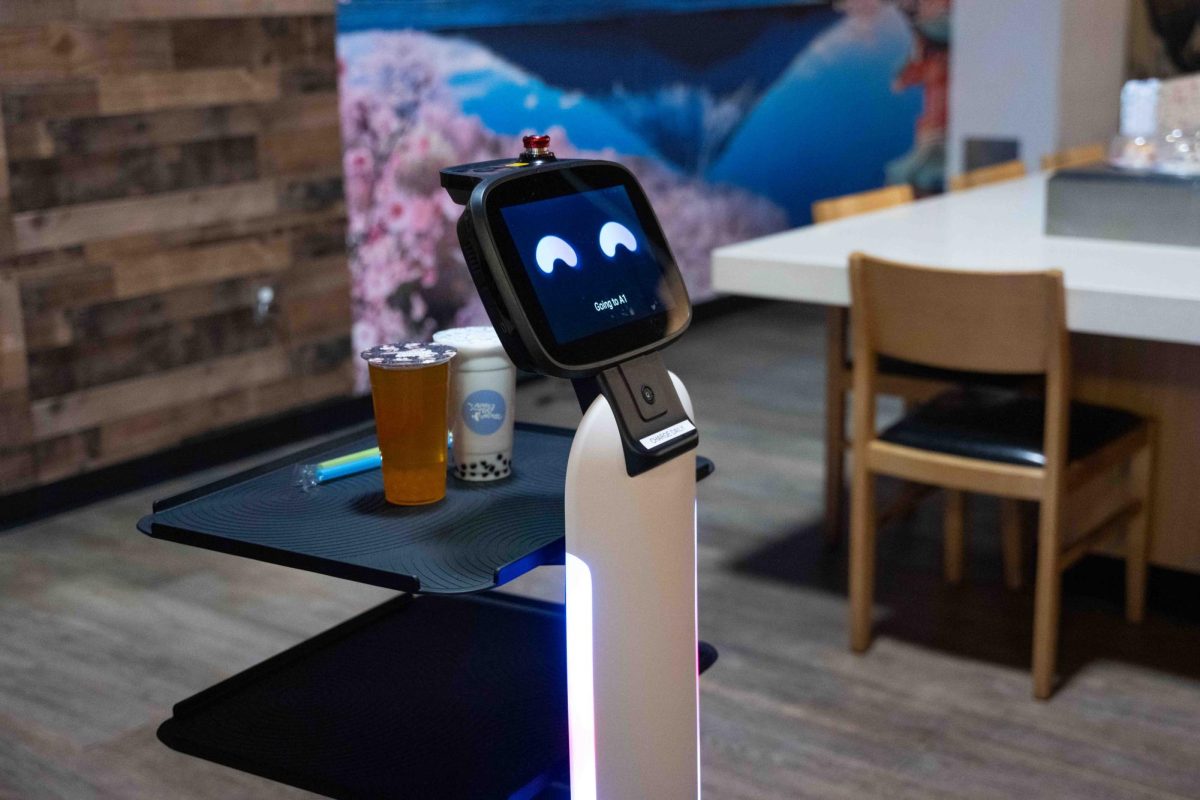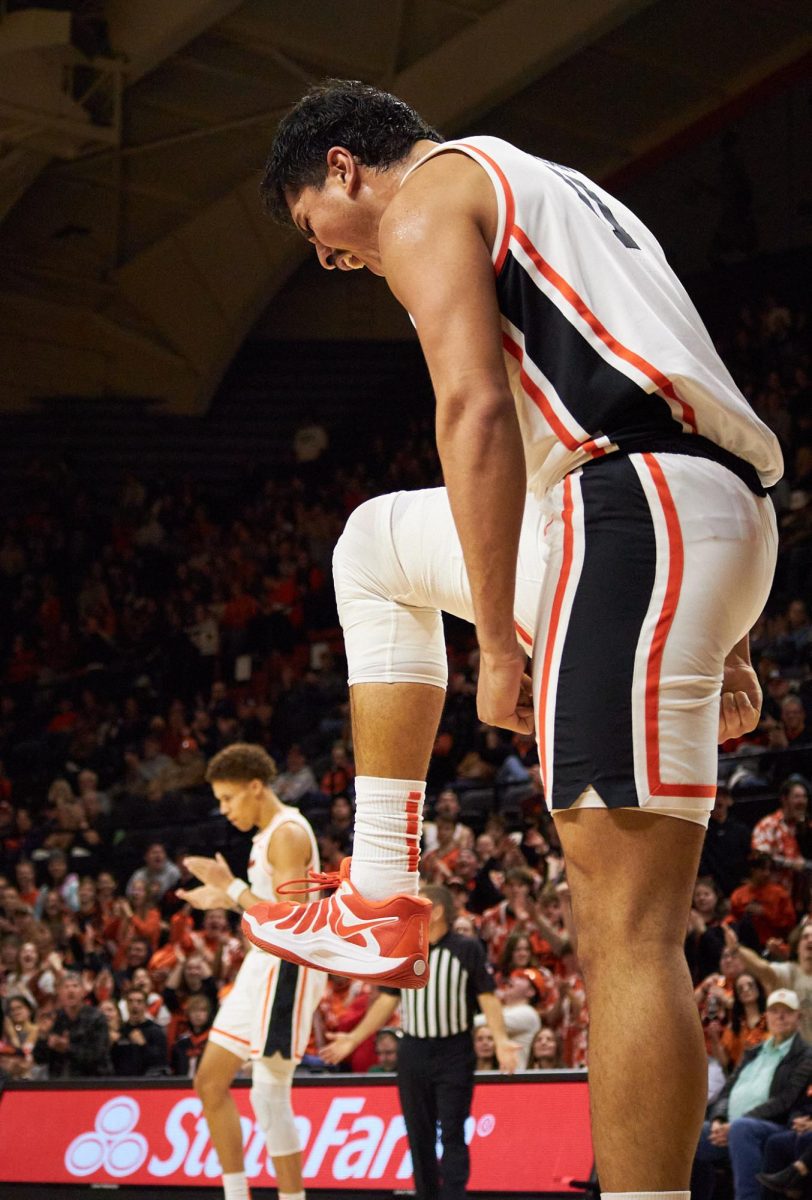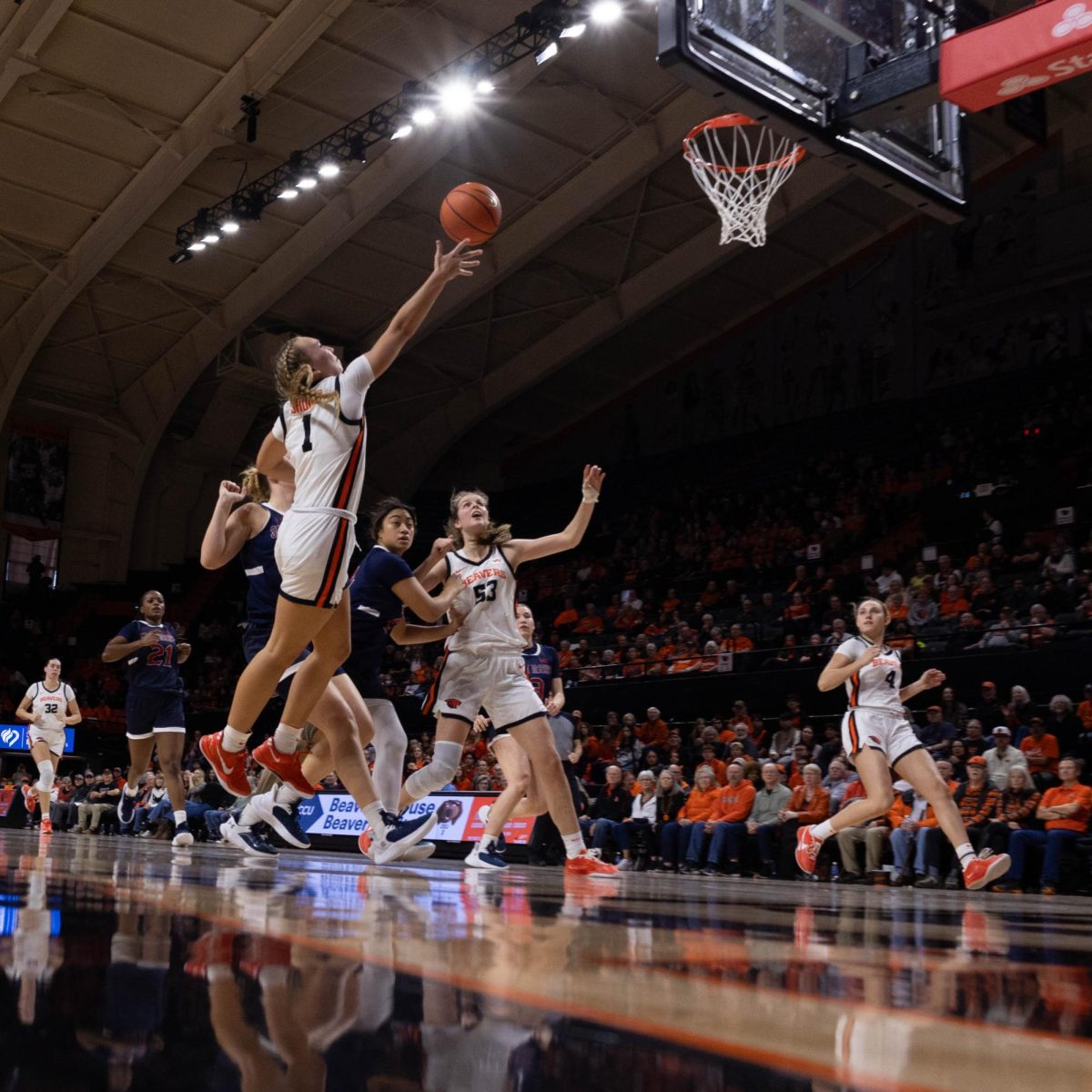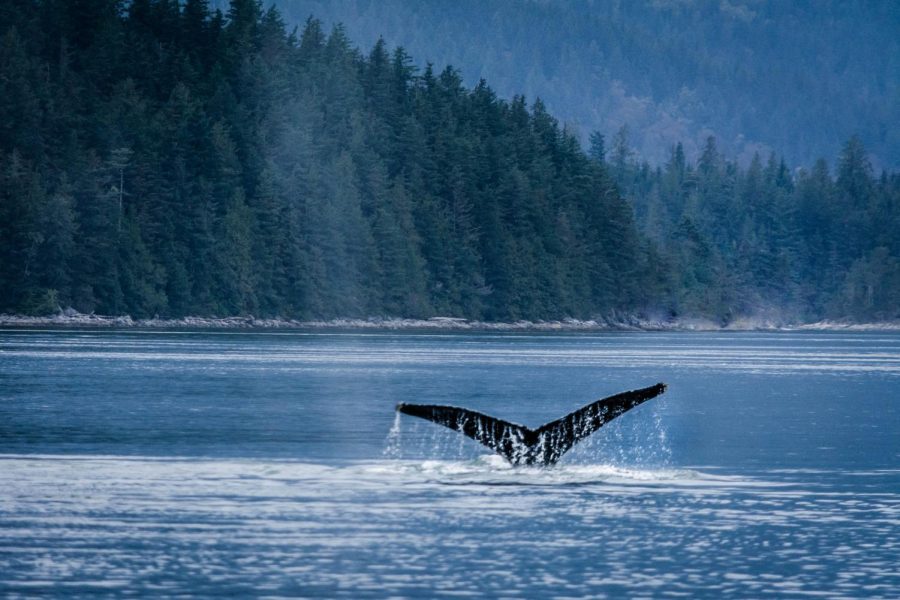Researching whale poop
November 28, 2016
Picking up poop is not just for dogs anymore. However, these piles are much bigger.
Leigh Torres, Oregon State University assistant professor for fishery and wildlife, developed a new idea and way to study whales, by examining their feces.
Over the summer Torres lead a team of researchers and students studying how ocean noise affects whales through their poop.
“Ocean noise has been on the rise in the past decades. There have been long term impacts in increased ocean noise. That led us to this project. We are sampling the whale poop to detect stress hormone levels,” Torres said.
Torres said these types of studies can work on all sorts of mammals.
First year OSU environmental engineering and oceanography student Etasha Golden assisted Torres out on the open seas for four days.
“I was looking through a telescope to look for birds and whales and I would keep track of how many I would see,” Golden said.
According to Golden, the team would meet at 7 a.m. sharp in Newport at the boat dock and depart at 9 a.m. The boat usually consisted of a couple graduate and undergraduate students, a drone to help search, and a research technician who drove the boat and flies the drone, and of course Torres.
“Finding the whales is relatively easy, they are here a lot. We go out in the little boat and we find them pretty easy,” Torres said.
Whale watching is just the beginning of the process of analyzing whale poop. Researchers had to physically grab the poop before it floats away.
“We use a fine mesh net that we drag through the water where the plum is,” Torres said.
Torres described a plum as a reddish-purplish color, so when her team spots the giant mark in the ocean they rush towards it.
Golden explained that there’s a lot more that goes into it than just picking up poop.
“It’s not just whale poop it’s how you can analyze how these animals are feeling and if they are stressed or not. There is literally hormones in the poop that you can analyze and that actually allows you to see if the whale population is going to increase,” Golden said.
Torres said animals’ and humans’ emotions can be similar in multiple ways that revolve around stress. This relationship can lead to a better understanding of whales from
a human perspective.
“When we are stressed we are more susceptible to disease and colds and that has been shown in other animals in relation to noise. We use hydrophones in the water recording the noise in different areas,” Torres said.
Torres and her research team poop hunt in the late summer and early fall because of the whale migration periods.
“There is a certain whale season. We went in fall because that’s when they are migrating down the coast line to get to warmer waters and then they will go and breed close by California and then they will come back up the coastline in late spring and summer,” Golden said.
Torres has the ability to track the progress of individual whales and can continue to track their progress and how it fluctuates between research periods.
“(It’s) easy to resample whales. Hopefully we see the same whales, they like the Oregon coast so we like to see them year to year,” Torres said.
Torres said the results from this year’s season of whale poop research is promising for upcoming years.
“We did fairly well this season with over 50 samples. We want the project to carry on for hopefully six or seven years, to answer the impact of whales,” Torres said.
Seventeen-year-old Newport High School senior Leland Wood, was involved with the research and worked with both Golden and Torres. He thoroughly enjoyed his
tasks and experience.
“We had this large machine that held sensors and equipment which we would drop into the water column and see what the water was like. We could see temperature, density, salinity, clarity, light levels, bacteria levels and more. This was really cool since we could drop it 1000 meters into the ocean and get a readout of what the water was like,” Wood said.
Students at OSU can also get involved in future research trips.
“Taking ecology and oceanography courses will introduce you to the topics, try and get internships, I take on undergraduates a lot with my
projects,” Torres said.
Although still in high school, Wood sees the importance of this research.
“We don’t know everything about whales in the open ocean and how we are impacting them. We have to monitor them so we know how our activities are affecting them and to use as a base for future generations,” Wood said. “We want to have sustainable practices and keep our whales so we need all the information we can to
have healthy populations.”
According to Golden, there is a lot of work involved but the amazing moments in between made it all worthwhile.
“Leigh was jumping up and down, screaming her head off because there was literally about 200 humpbacks surrounding us at sunset,” Golden said.
Torres’s research has become more than just a poop hunt but memorable experiences and results.
“I pretty much like it all, it is pretty exciting. We have acoustic and photo id and drones and new technology and hormone analysis. It basically is a game of patience,” Torres said. “It is fun and adds a bit of unpredictability. Fecal samples are great because they are not invasive and not harmful to the animals.”
According to Golden, the experience of whale research is a rare opportunity and is extremely interesting.
“It was life-changing, it was amazing and all the adults on there (researchers) were saying, ‘this is incredible, this never happens, this is once in a lifetime and you need to appreciate this,’” Golden said.









